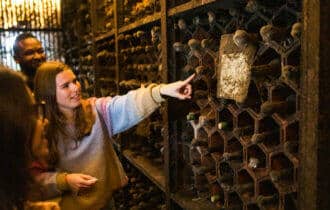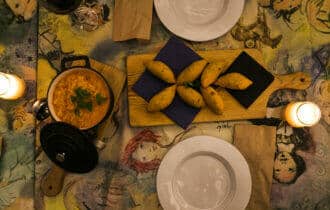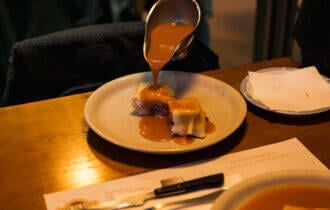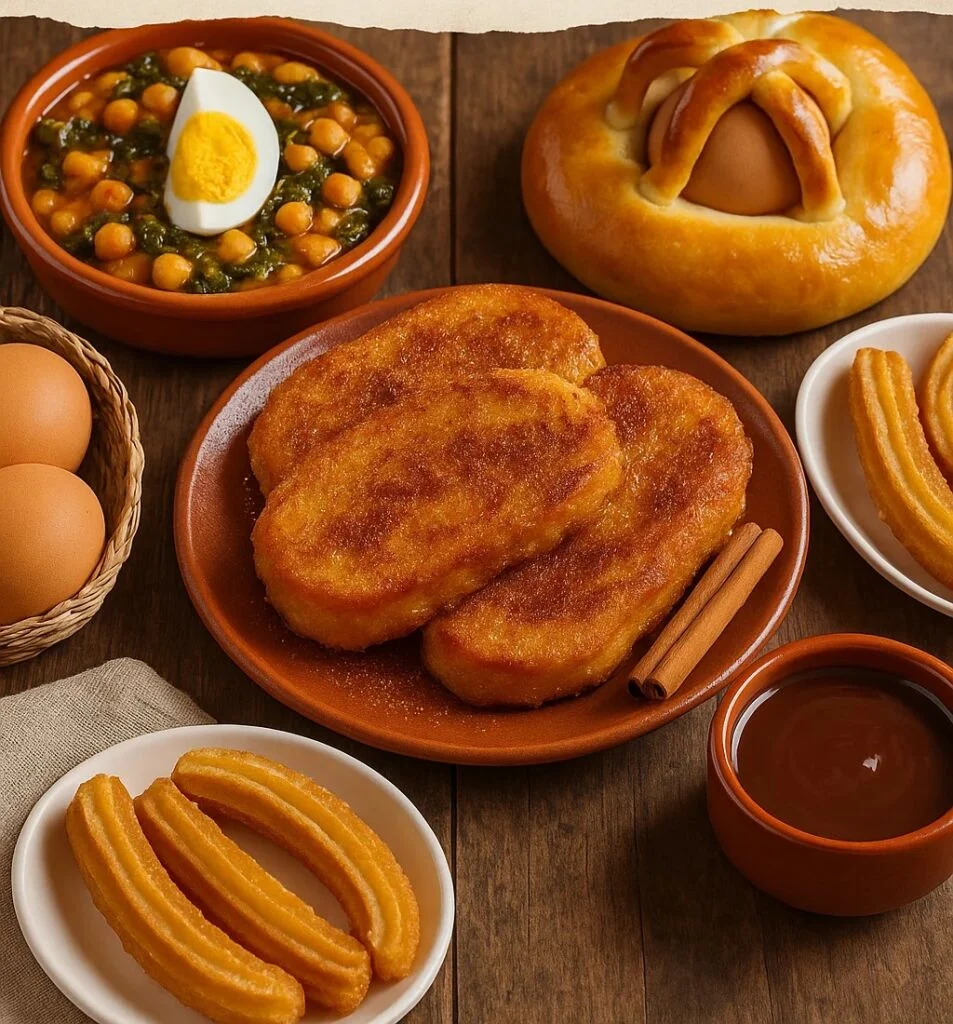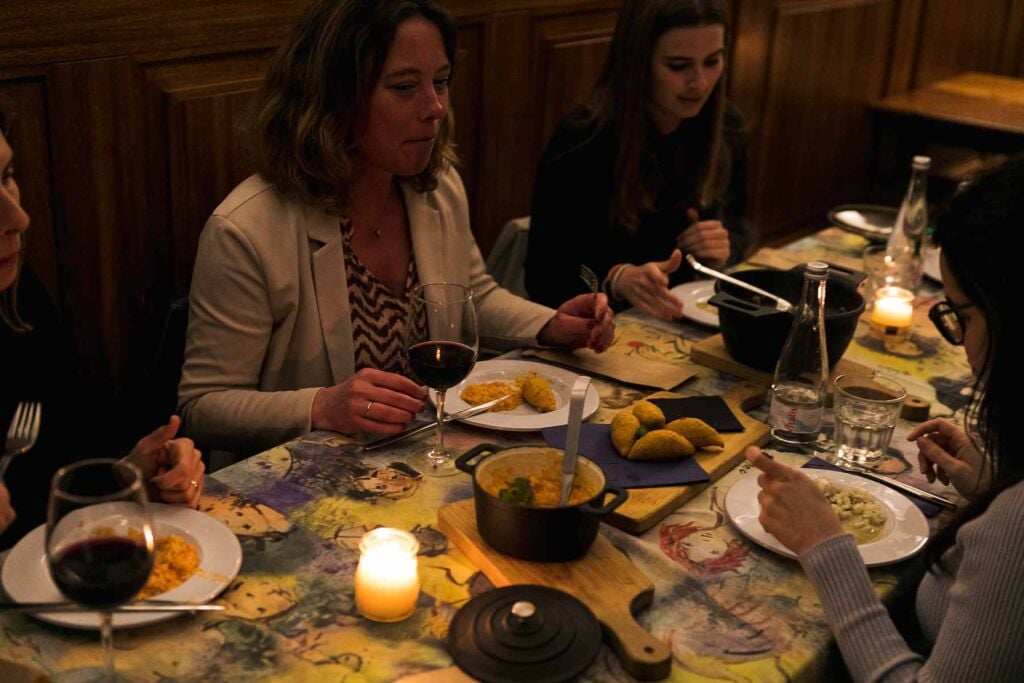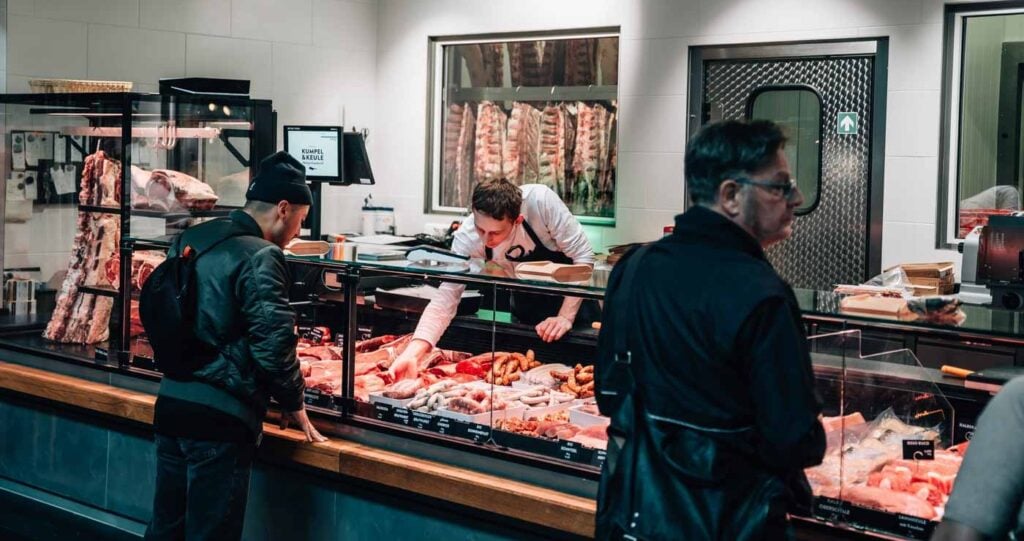Easter bookings for Portugal are increasing, meaning more visitors than ever will have an opportunity to discover another side to the Iberian nation’s legendary cuisine. After trying some much-loved Portuguese Easter foods last year, I quickly learned that I’d made a huge mistake not visiting at this time of year before!
I wish I could include some of my favorite regional Easter specialties in my Lisbon food tours or Porto food tours, but most of these dishes are only available during and after the Lenten period. However, this makes them feel a little more special!
In this article, I’ve broken down all the finest Portuguese Easter foods and included recommendations for where to find them.
The Significance of Easter Food in Portugal
Easter is considered the most sacred time of year for Catholics. Given that Portugal has had a predominantly Catholic population for centuries, it’s no wonder that locals take their Easter celebrations seriously.
Food, of course, is front and center throughout Lent and Easter, serving both as a religious symbol and a means of bringing the community together. While traditional Portuguese Easter desserts tend to be the most popular seasonal offerings, there are plenty of savory alternatives for those with less of a sweet tooth.
Many of the dishes are very much aligned with classic Portuguese flavors, and since Catholics avoid meat every Friday during Lent, favorites like bacalhau, which is salted codfish, are even more popular than usual!
Top Traditional Portuguese Easter Food
Folar da Pascoa
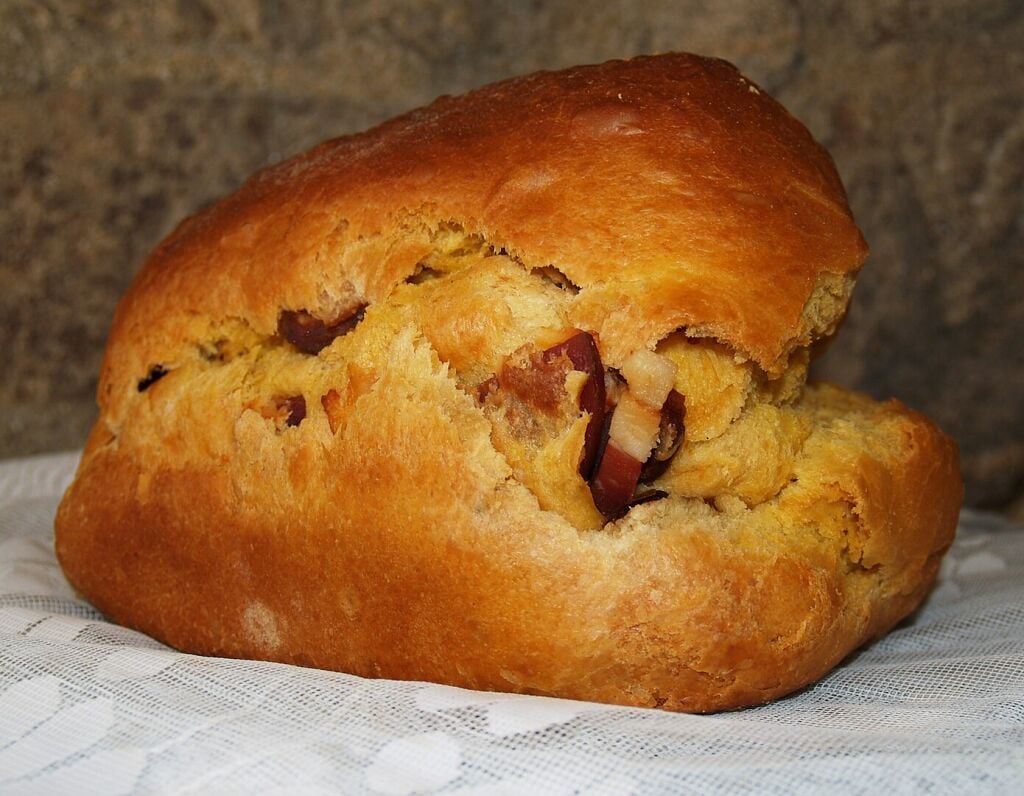
I can’t talk about Portuguese Easter food without mentioning folar da Pascoa. This Easter bread comes in sweet and savory varieties, but the latter is the most traditional folar da Pascoa. Bea in Porto says:
“The tradition of folar is linked to the act of offering bread as a gift during Easter, especially between godparents and godchildren. In the past, godchildren would visit their godparents on Palm Sunday to receive a blessing, and in return, they would be given folar on Easter Sunday.”
It’s typically made from flour, sugar, butter, and eggs and is flavored with anise and cinnamon. In the center, you’ll usually find hard-boiled eggs to represent the resurrection. The bread differs depending on where in the country it’s made, but I love the lightly sweet version from Padeirinha Doce in Porto.
Bacalhau
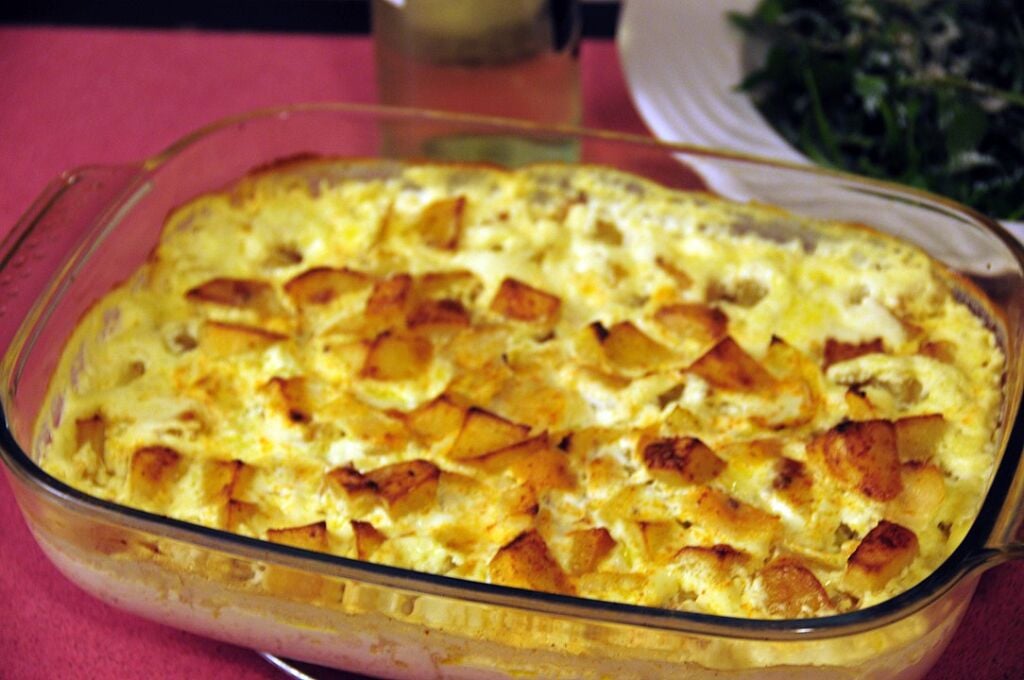
Bacalhau is arguably Portugal’s most iconic food. This dried and salted cod is used to create a plethora of flavorful dishes all year round, which are fitting choices on Fridays during Lent when many locals choose to avoid meat.
The Lisbon region is particularly famous for its bacalhau, including Sintra’s bacalhau espiritual, a casserole made from cod, béchamel sauce, bread, and carrots. It’s often only available as a special, and I snagged some at Bacalhau na Vila.
Pão de Ló
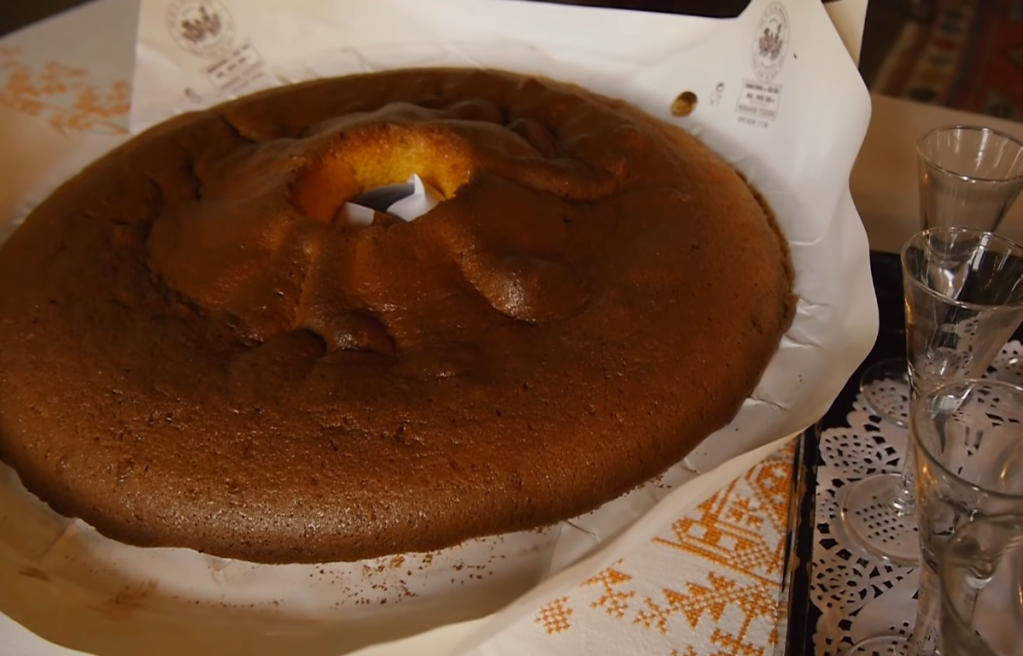
Pão de ló is a much-loved sweet Portuguese Easter food. It’s a relatively simple sponge cake made from flour, eggs, sugar, cinnamon, and a dash of lemon.
This delightful dessert is believed to have been first crafted in a monastery in the Oeste e Vale do Tejo region between the 15th and 17th centuries. If you happen to make it to Alcobaca, make your way to Pastelaria Alcôa for some sensational pão de ló!
Amêndoas

Amêndoas, which is the Portuguese word for ‘almonds,’ may seem like a surprising addition to this list. However, at Easter, locals enjoy these crunchy nuts with a layer of sugar or chocolate, and their resemblance to eggs means this snack is considered a symbol of rebirth or new life.
Almond production has long been associated with the Algarve region, and I’ve picked up sugar-covered versions in various stores like O Cabaz Algarvio in Faro.
Cabrito Assado
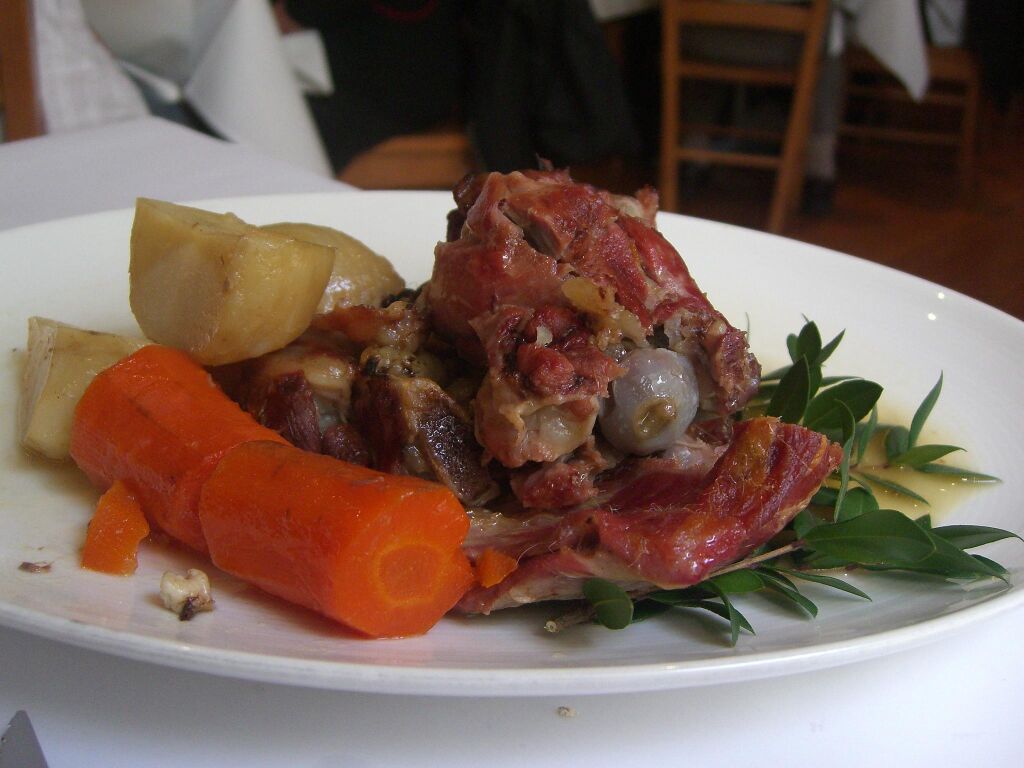
Cabrito assado is often the culinary highlight of the Easter Sunday celebrations in Portugal. Translating to ‘roasted goat,’ cabrito assado is one of the most symbolic Easter foods in Portugal and is thought to reflect the paschal lamb from the Old Testament.As such, some people swap out the goat meat for lamb.
The goat or lamb is slow-roasted until tender and is seasoned with garlic, paprika, white wine, and bay leaves. This dish hails from northern Portugal, so I suggest trying it in Porto‘s superb A Cozinha do Manel.
Regional Easter Food Traditions
Portugal has a lengthy list of regional Easter specialties. Although most dishes are available across the country, some can only be found in specific areas. Here are the top foods to sample by region.
Lisbon: Bacalhau
Northern: Cabrito assado
Central: Ovos moles
Alentejo: Ensopado de borrego
Algarve: Amêndoas
Oeste e Vale do Tejo: Pão de ló
Conclusion
Visiting Portugal during Semana Santa is an incredibly enriching experience for foodies and culture buffs alike. When it comes to Portuguese Easter food, you can expect all of the typical local flavors with some tasty twists!
Sources
Money Tourism. (2024, April 5). 16.8% increase in Easter 2025 bookings – Spain and Portugal in the top positions. https://money-tourism.gr/en/16-8-increase-in-easter-2025-bookings-spain-and-portugal-in-the-top-positions/
Eating Europe. (n.d.). Lisbon food tours & culinary experiences. https://www.eatingeurope.com/lisbon/
Eating Europe. (n.d.). Porto food tours & culinary experiences. https://www.eatingeurope.com/porto
Tripadvisor. (n.d.). Padeirinha Doce, Porto. https://www.tripadvisor.co.uk/Restaurant_Review-g189180-d3958680-Reviews-Padeirinha_Doce-Porto_Porto_District_Northern_Portugal.html
Tripadvisor. (n.d.). Bacalhau na Vila, Sintra. https://www.tripadvisor.co.uk/Restaurant_Review-g189164-d12609293-Reviews-Bacalhau_na_Vila-Sintra_Sintra_Municipality_Lisbon_District_Central_Portugal.html
Pastelaria Alcôa. (n.d.). Pastelaria Alcôa. http://www.pastelaria-alcoa.com/
Tripadvisor. (n.d.). O Cabaz Algarvio, Faro. https://www.tripadvisor.ie/Attraction_Review-g189116-d19932317-Reviews-O_Cabaz_Algarvio-Faro_Faro_District_Algarve.html
Tripadvisor. (n.d.). A Cozinha Do Manel, Porto. https://www.tripadvisor.co.uk/Restaurant_Review-g189180-d3136043-Reviews-A_Cozinha_Do_Manel-Porto_Porto_District_Northern_Portugal.html

